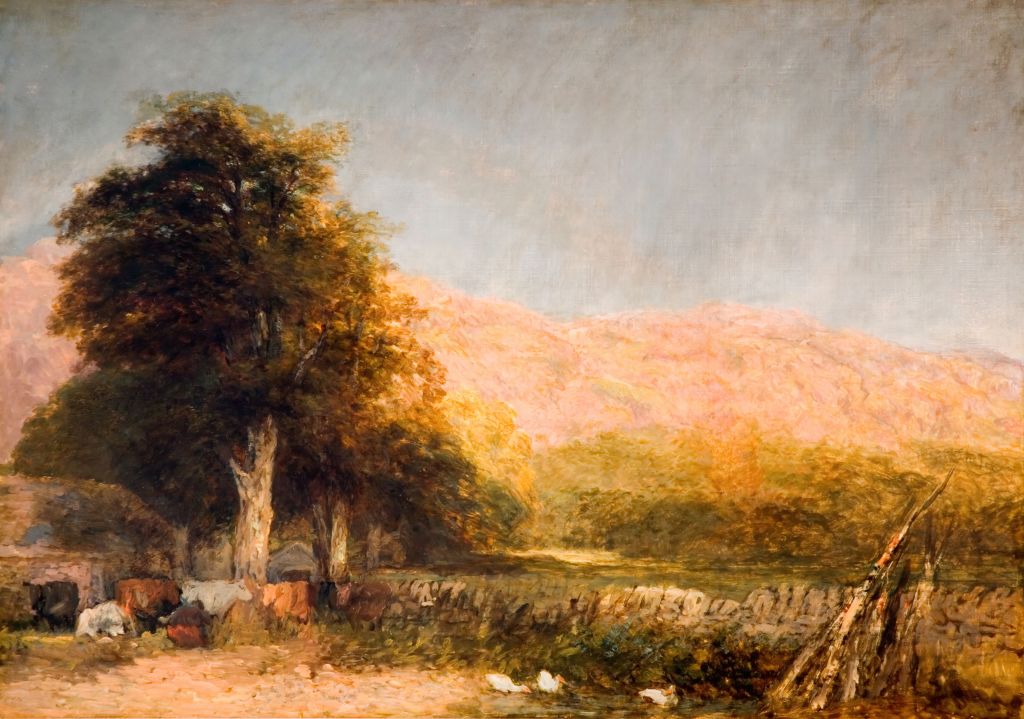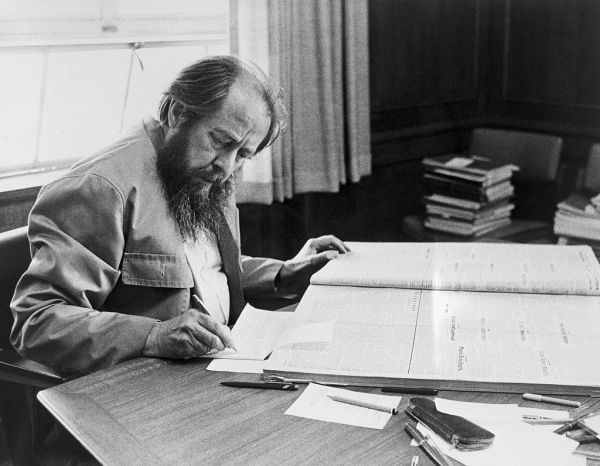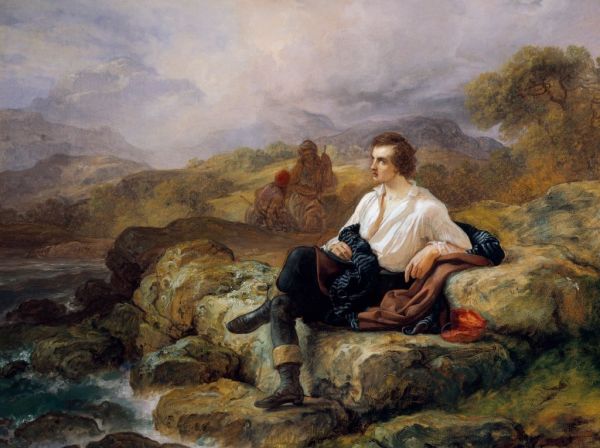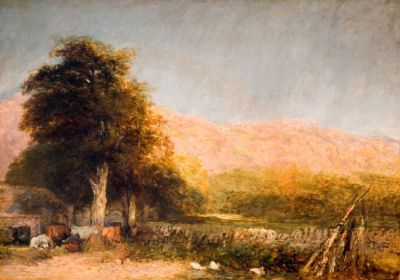Are the gender wars back? With viral TikToks of tearful millennials lamenting the “total nightmare” of modern dating, polls throughout the election season showing Gen Z men and women diverging politically, and reports of women embracing the abstinent 4B movement in response to Donald Trump’s presidential win, it sure seems so. Rather than being a source of happiness, many young people today seem to treat the opposite sex as an obstacle to it instead.
Part of this dispiriting story may have its roots in the astonishing (and necessary) advancements in women’s social and economic roles over the last 50 years. But although these developments might seem new, this era of remarkable transformation is not unprecedented.
The 19th-century English novelist Thomas Hardy published Far from the Madding Crowd at the beginning of a similar period of gendered tumult, when a nascent feminist movement cultivated a generation of educated and career-minded “new women” while industrialization eroded non-elite men’s economic and cultural privilege. First serialized in Cornhill Magazine in 1874, the novel follows a gentlewoman farmer and the three suitors vying for her hand in the fictional countryside of “Wessex.” Despite this veneer of pulp romance, Far from the Madding Crowd asks the kinds of questions that still seem to haunt young people 150 years since its publication—questions about virtue, tradition, and not just love but, perhaps more importantly, friendship between the sexes.
The novel’s heroine is the young, spirited, and beautiful Bathsheba Everdene. Her first proposal comes from Gabriel Oak, a hardworking and remarkably wise shepherd whom she turns down because she doubts his capacity to “tame” her. She accidentally ensnares the affections of her neighbor William Boldwood, a wealthy farmer whose moods swing wildly from placid reserve to impassioned fixation. And she’s ultimately seduced by Sgt. Frank Troy, whose dashing looks and charm hide a terrible secret.
The conclusion seems obvious from the start: Bathsheba should have always picked Oak, instead of toying with Boldwood and hastily agreeing to marry Troy. But Hardy’s writing is much more subversive. Bathsheba may be beautiful, but she’s also driven, intelligent, and fiercely independent. Her journey to become the mistress of her farm is as important to her character development as her romantic turmoil. “If you serve me well, so shall I serve you,” she asserts to her workmen upon resolving to personally manage the land she inherited. “I shall be up before you are awake, I shall be afield before you are up, and I shall have breakfasted before you are afield. In short, I shall astonish you all.”
Despite her inexperience, Bathsheba proves to be a shrewd businesswoman in her own right, but not merely as some kind of Victorian #girlboss. For all her strengths, Bathsheba has plenty of weaknesses, including vanity and a childish impulsivity. Bored on a Sunday evening, she decides to send a valentine to Boldwood with a seal that reads, “Marry Me.” Her joke sets him on a path toward madness.
Although Bathsheba is not without some blame for inciting Boldwood, Hardy makes it clear that she does not deserve his single-minded pursuit. He may publicly appear to be an exemplar of stoic Victorian manliness, but Boldwood’s composure is held together by the slenderest thread. “His equilibrium disturbed, he was in extremity at once … If an emotion possessed him at all, it ruled him,” Hardy writes. Boldwood treats Bathsheba’s valentine as a spell that permanently knocks him off his emotional balance.
What Hardy wants us to understand is that Boldwood is not just wrong for Bathsheba because he is mentally disturbed, or because he clearly views her as a kind of property. Beyond that, he is also wrong for her because he is so occupied with worshiping an idea of her embalmed in Victorian notions of 19th-century femininity that he does not really see her. When he corners her to propose, Boldwood promises that she “shall have no cares – be worried by no household affairs … shall never have so much as to look out of doors at hay making time – or to think of weather in the harvest.” In his blind fixation, he cannot begin to understand why Bathsheba finds tremendous meaning in the challenge of managing her own farm.
Troy, on the other hand, literally ensnares Bathsheba. They first meet when his spur gets caught on her dress, resulting in a bout of witty repartee that piques her interest. Her attention evolves into infatuation after he draws her into the forest for a display of swordsmanship. But despite his physical and mental acuity, Troy is entirely governed by his momentary whims, especially as they relate to his pride and sexual appetite. To her detriment, he also feeds Bathsheba’s vanity. Despite “having penetrated Troy’s nature so far as to estimate his tendencies pretty accurately,” she makes the rash and desperate decision to marry him upon fearing that she will lose him to another woman. While Boldwood offers Bathsheba a life of leisure, Troy seeks to leech off her wealth, status, and beauty, being much more interested in drinking and gambling than in seriously superintending her farm.
Could Bathsheba have avoided the whole mess by accepting Oak’s proposal at the outset? Hardy seems dubious of this idea. Although Oak accurately discerns Bathsheba’s vanity from the start and judges her mercilessly for it, he only barely knows her name when he resolves to propose to her. Like Boldwood, he wants to wed someone whose outline he has only barely begun to discern.
At the same time, Oak’s humble status as a shepherd belies nobler qualities. When Bathsheba turns down his marriage offer, he respects her wishes instead of doggedly pursuing her like the other suitors. When an inexperienced sheepdog chases his flock off a cliff—an investment that would have enabled the purchase of his own farm—he faces this personal devastation with stoicism instead of raging pointlessly against the world. And when Bathsheba saves him by offering him a job as a shepherd on her farm, he does not allow his pride to prevent him from accepting an offer that retains him in a lower social status. He instead transmutes his bitterness into a fierce loyalty, heroically saving her farm from ruin multiple times throughout the book.
But what really makes Oak the most fitting match for Bathsheba is his willingness to work with her. Honest exchanges that nurture a genuine friendship emerge as they shear sheep together, cover hayricks in a storm, and repair the grave belonging to the unwed woman and child that Troy had abandoned (figures who serve as Hardy’s warning of the price Victorian gender norms could exact on the vulnerable). Hardy argues that the “good-fellowship,” or “camaraderie” that results from shared labors cultivates “the only love which is strong as death.” And while they may not be raising children together, this work is genuinely life-giving. In sustaining the farm, Bathsheba and Oak protect the families who depend on it for their livelihoods and community.
Troy and Boldwood destroy each other instead, driven by the vices embedded in the distorted theories of masculinity they espouse. Hardy foreshadows this at the beginning of the book when Oak shoots the dog responsible for killing his flock. He sums up the act as “another instance of the untoward fate which so often attends dogs and other philosophers who follow out a train of reasoning to its logical conclusion, and attempt perfectly consistent conduct in a world made up so largely of compromise.”
Being in thrall to neither a philosophy of Victorian patriarchy nor chauvinistic self-indulgence, Oak can live more comfortably in a world of compromise and inconsistency than his rivals. One wishes Hardy had said more about how the character came to be this way. He offers one clue in the form of Oak’s small library, which along with texts on arithmetic and husbandry include great works of literature such as Paradise Lost, The Pilgrim’s Progress, and Robinson Crusoe. He also suggests that Oak’s father and grandfather were themselves decent men. Whether by nature or nurture, Oak is prepared to see how the many discordant qualities in Bathsheba make up a concordant whole. When, in one of the most beautiful passages of the book, he catches her riding through the pasture astride her horse rather than the conventional side-saddle that would have been expected of a young lady, he is neither scandalized nor titillated. He is merely amused—and “perhaps a little astonished.”
In the end, Bathsheba marries Oak because he has labored alongside her, suffered with her, and championed her ambition without letting her run away from her mistakes. He is the truest friend she has in the novel.
It is a sorry state of affairs that artistic depictions of this kind of love and friendship are less prevalent today, crowded out by the tradwife influencers, male toxicity experts, and manosphere podcasters who peddle brittle archetypes and broken systems to lonely people. When such artifice reigns in the modern imagination, we can thank Thomas Hardy for conjuring a true depiction of what it looks like for a man and a woman to depend on one another—and therefore inspire each other to live.






Please note that we at The Dispatch hold ourselves, our work, and our commenters to a higher standard than other places on the internet. We welcome comments that foster genuine debate or discussion—including comments critical of us or our work—but responses that include ad hominem attacks on fellow Dispatch members or are intended to stoke fear and anger may be moderated.
With your membership, you only have the ability to comment on The Morning Dispatch articles. Consider upgrading to join the conversation everywhere.